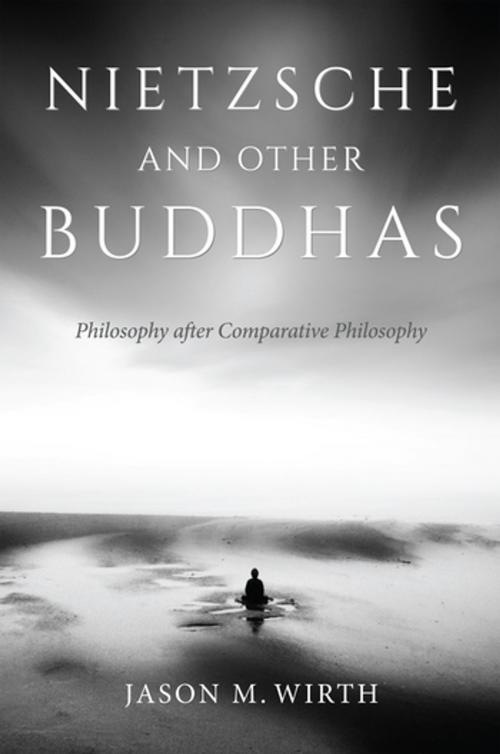Nietzsche and Other Buddhas
Philosophy after Comparative Philosophy
Nonfiction, Religion & Spirituality, Philosophy, Eastern| Author: | Jason M. Wirth | ISBN: | 9780253039743 |
| Publisher: | Indiana University Press | Publication: | March 4, 2019 |
| Imprint: | Indiana University Press | Language: | English |
| Author: | Jason M. Wirth |
| ISBN: | 9780253039743 |
| Publisher: | Indiana University Press |
| Publication: | March 4, 2019 |
| Imprint: | Indiana University Press |
| Language: | English |
In Nietzche and Other Buddhas, author Jason M. Wirth brings major East Asian Buddhist thinkers into radical dialogue with key Continental philosophers through a series of exercises that pursue what is traditionally called comparative or intercultural philosophy as he reflects on what makes such exercises possible and intelligible. The primary questions he asks are: How does this particular engagement and confrontation challenge and radicalize what is sometimes called comparative or intercultural philosophy? How does this task reconsider what is meant by philosophy? The confrontations that Wirth sets up between Dogen, Hakuin, Linji, Shinran, Nietzsche, and Deleuze ask readers to think more philosophically and globally about the nature of philosophy in general and comparative philosophy in particular. He opens up a new and challenging space of thought in and between the cutting edges of Western Continental philosophy and East Asian Buddhist practice.
In Nietzche and Other Buddhas, author Jason M. Wirth brings major East Asian Buddhist thinkers into radical dialogue with key Continental philosophers through a series of exercises that pursue what is traditionally called comparative or intercultural philosophy as he reflects on what makes such exercises possible and intelligible. The primary questions he asks are: How does this particular engagement and confrontation challenge and radicalize what is sometimes called comparative or intercultural philosophy? How does this task reconsider what is meant by philosophy? The confrontations that Wirth sets up between Dogen, Hakuin, Linji, Shinran, Nietzsche, and Deleuze ask readers to think more philosophically and globally about the nature of philosophy in general and comparative philosophy in particular. He opens up a new and challenging space of thought in and between the cutting edges of Western Continental philosophy and East Asian Buddhist practice.















